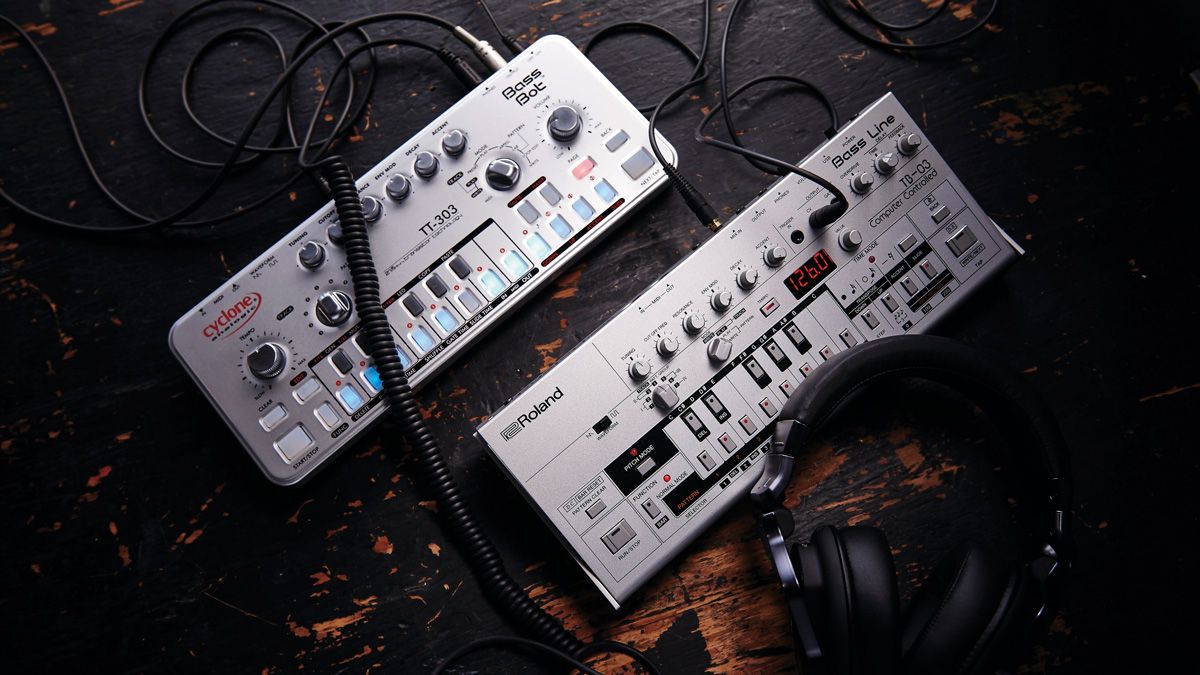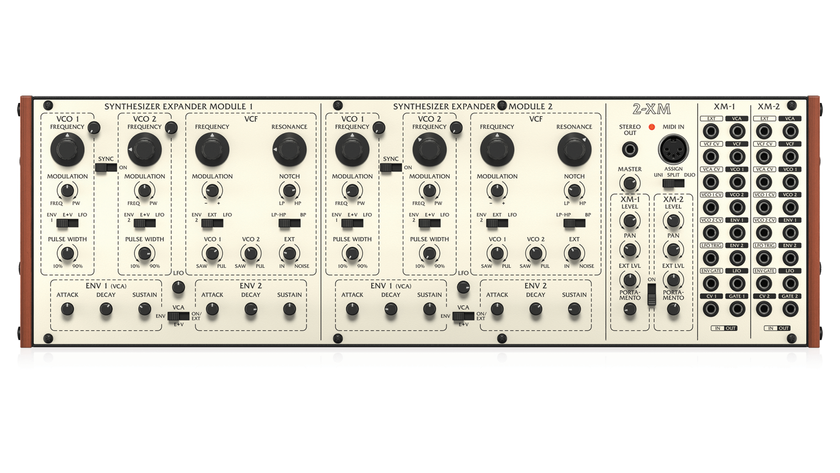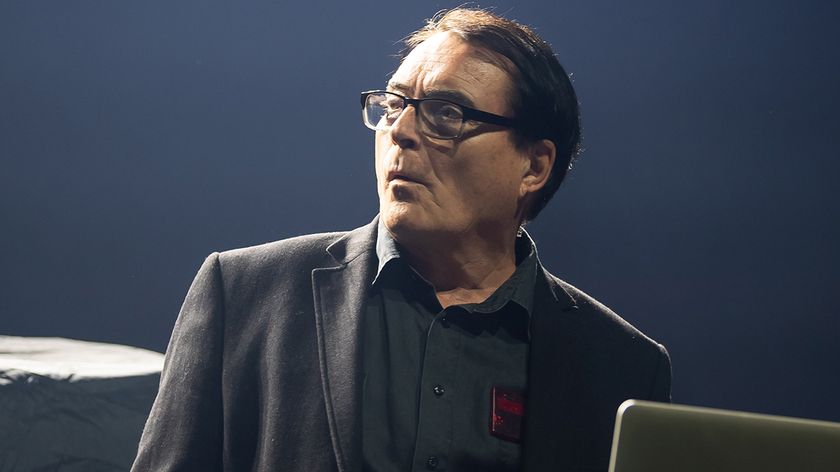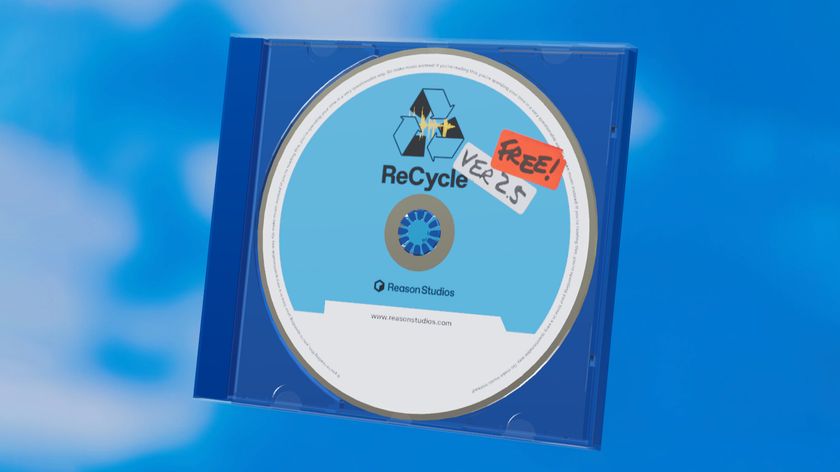Tech head to head: 303 Clones
When two clones go to war

Surely no other single-oscillator, four-parameter, synth engine has garnered so much attention as that of Roland’s accidental hero, the TB-303!
Here we pitch two modern takes on the original against each other to see which is best. Will it be analogue or digital that saves the day?
After years of escalating prices for original units, and many unofficial clones and tributes, Roland finally got around to releasing an updated 303 late last year… only this time it was an all-digital affair.
The alternative, Cyclone’s Analogic TT-303, keeps things analogue, and has just hit the streets in its newly-designed skin.
Connectivity and control
Although the TB-03 is a largely digital beast (with MIDI and USB ports), it does add CV/Gate outputs (for controlling an external analogue synth), and a Trigger In (that allows an external unit to drive sequencer timing).
USB handles both MIDI and audio, allowing the TB-03 to be used as an audio interface The Bass Bot also features a full MIDI specification, and adds CV/Gate and Accent, plus Clock outs for interfacing with other analogue gear. Both the 303 clones offer a plentiful supply of MIDI CC control for those who need to record and automate their knob twiddling.
Sequencer programming
The original 303 never had the most intuitive programming system, though it’s nudging serendipity to the fore was an important part of why it ultimately found fame. The TB-03 includes the original’s Pitch and Time write modes, but adds a more intuitive Step mode.
Get the MusicRadar Newsletter
Want all the hottest music and gear news, reviews, deals, features and more, direct to your inbox? Sign up here.
Unlike the original, it is possible to move between Write and Play without stopping the sequencer. The TT-303 Bass Bot, on the other hand, excels in pattern creation possibilities. There are options for automated pattern creation, pattern mutation and arpeggiation. This newer version also adds Loop Edit and Pattern Lab modes.
Signal processing
Much argument and misinformation surrounds the architecture of the original TB-303’s filter design, and it’s nice to see the TT-303 offer a way of injecting your own audio into the signal path for processing by the 24dB/octave four-stage diode ladder filter via the Filter In jack.
Sadly, the Mix In on the Roland is not sent through the audio engine. Where the TB-03 wins, though, is with the built-in effects. Three flavours of distortion/overdrive open up its sonic palette, and a delay line can be used to add complexity and polish.
Sound engine
Both the TB-03 and TT-303 have similar sound engine controls, though similar settings sound different - as they even do to some extent between original TB-303s.
The biggest difference lies in how the sound is generated: Roland delivers the sound of a 303 using the ACB (Analog Circuit Behavior) technology - a fancy phrase for the company’s take on audio DSP.
Cyclone, on the other hand, sticks to an all-analogue signal path. It does however employ Surface Mount components, something at which absolute purists may balk. It should also be noted that the TT offers a relatively easy way to adjust global Gate and Side Time.
Construction
The Roland has a (partly) metal case, runs from batteries or USB power and features a mini-speaker. Construction is robust, though the small knobs make live parameter noodling rather fiddly at times.
The Cyclone 303, on the other hand, makes use of larger and more engaging parameter knobs. It’s lighter, and comes with a carry case, but sadly requires an external PSU, which precludes music on-the-go, unless you’re up for a bit of DIY.
Our verdict:
Cyclone Analogic TT-303: Authentic analogue experience, better programming, and plenty of pattern creation options.
Roland TB-03: Digital emulation means onboard effects and modern audio interfacing options for a classic design.


Future Music is the number one magazine for today's producers. Packed with technique and technology we'll help you make great new music. All-access artist interviews, in-depth gear reviews, essential production tutorials and much more. Every marvellous monthly edition features reliable reviews of the latest and greatest hardware and software technology and techniques, unparalleled advice, in-depth interviews, sensational free samples and so much more to improve the experience and outcome of your music-making.










![Chris Hayes [left] wears a purple checked shirt and plays his 1957 Stratocaster in the studio; Michael J. Fox tears it up onstage as Marty McFly in the 1985 blockbuster Back To The Future.](https://cdn.mos.cms.futurecdn.net/nWZUSbFAwA6EqQdruLmXXh-840-80.jpg)